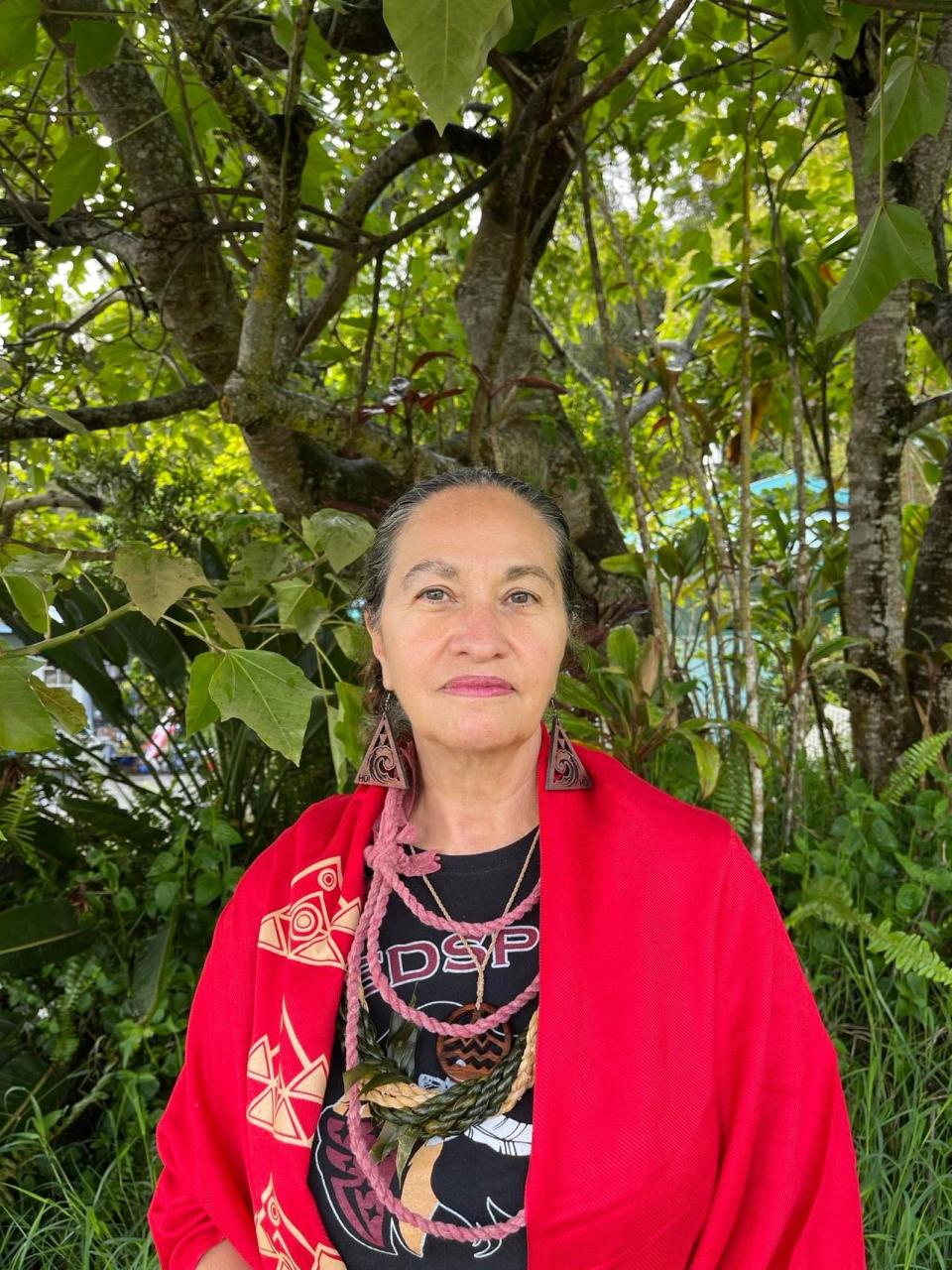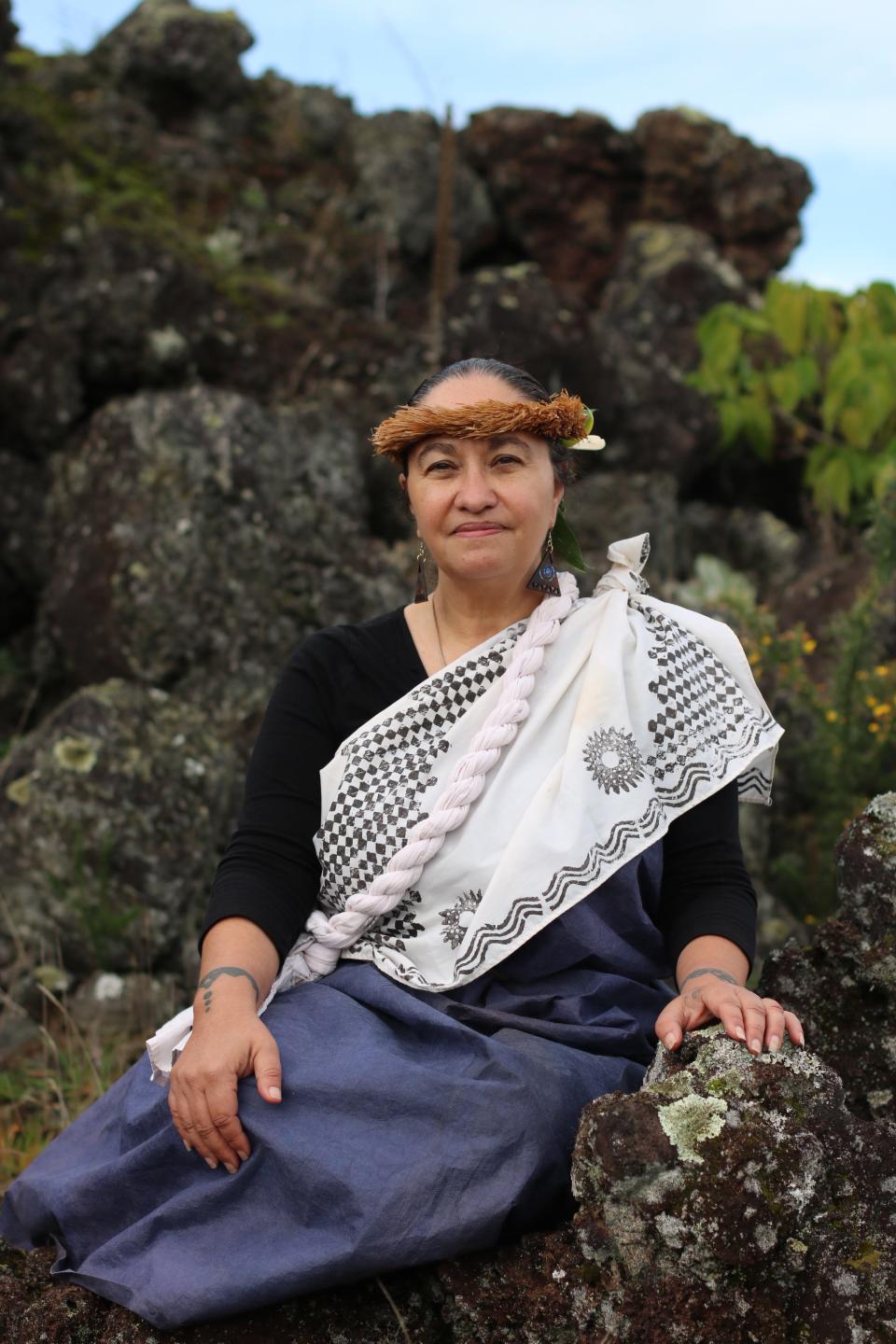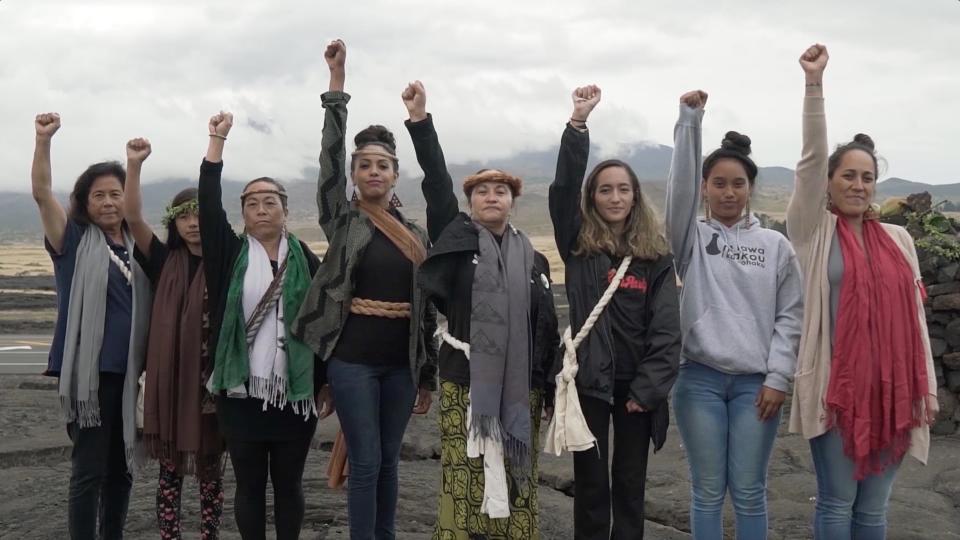Pua Case wants to share Hawaiian culture with the world. Her work is far from finished.

Pua Case is one of USA TODAY’s Women of the Year, a recognition of women who have made a significant impact in their communities and across the country. The program launched in 2022 as a continuation of Women of the Century, which commemorated the 100th anniversary of women gaining the right to vote. Meet this year’s honorees at womenoftheyear.usatoday.com.
Pua Case is leery to accept any sort of recognition for her work.
A self-described "alliance and bridge builder" and an educator by trade, Case is determined to share Hawaiian culture, customs and roots with the world.
Case spent 20 years teaching middle school social studies, focusing on Hawaiian history, a chapter often glossed over in traditional American history textbooks. As a Kumu Hula, she teaches Native rituals, dance, prayer and chant. A fierce and lifelong advocate committed to keeping Native Hawaiian customs and language alive, Case is best known for her work with the Mauna Kea movement.
In 2019, Case joined thousands of other Native Hawaiians, including her two daughters, to protest the construction of an 18-story telescope on Mauna Kea, a dormant volcano on the island of Hawaii that's considered sacred in traditional teaching.
Case, 62, teamed with other activists and spent nine months living in her van, which was parked "in a lava field, on an access road," a brutally challenging stretch. Dozens were arrested.
She identifies as a kiaʻi, Hawaiian for "a water protector, land defender and guardian." She is protecting the mountain.
The Hawaii honoree for USA TODAY's Women of the Year program, Case wants to make one thing clear: Being recognized, she says, is not about her as an individual butproof that "the collective voice and efforts to protect Mauna Kea is working."
And there's still more work to do.
This conversation has been edited for length and clarity.
Who paved the way for you?
The strong, brave women who never gave up, who took the time to make sure that they retained enough knowledge to pass down to us the vital life ways, the traditions and values that served as the foundation for us. Those women who never stopped believing in the need to ensure being Hawaiian would live on. Those were my teachers and mentors, who are now my fellow guardians and protectors within and beyond Hawaii.

Do you have a proudest moment?
I have many. A proud moment for me was seeing my younger daughter, at the age of 15, standing in line on June 24, 2015, as her (protest) line captain was arrested in front of her. A proud moment for me was coming up the mountain on April 2, 2015, and having my older daughter chant back to me with police surrounding us everywhere.
Moments that involve my daughters, especially as I've seen them grow into themselves and become the brave, yet fragile, women that they are, and having them overcome challenges makes me proud. Every time I see my girls and myself do something that means the mountain is protected one more day, that we've spread the message one more time, that's what makes me proud.
Do you have a lowest moment?
I wouldn't say I have a lowest moment because I've come to realize that a loss can still mean a win. When we were not successful in stopping the approval of the permit for (the telescope) on Mauna Kea, we experienced what you would call a loss. My husband said, "You go to the mountain; you have one day to cry your heart out. And then you come back, we regroup, we move on and we make a plan for the next day."
And we did. We went to the mountain and cried the whole day. We felt that sorrow. But then I think to myself, if we had won in 2012, there never would have been a Mauna Kea movement, and we would not have inspired the whole world. Every day that mountain is protected and safe, that's a win.
What makes me sad is when our voices are not heard – when we have to work so hard for the environment, for our practices, for our very existence – as Native, Indigenous or first peoples of a place.
What is your definition of courage?
Becoming braver than your fear so you are willing and able to do what you never thought you would. Sometimes you crawl to courage. That's OK.
Do you have a guiding principle or mantra that you tell yourself?
I think that we, in the Mauna Kea movement, have one. The term Kapu Aloha, it's our code of conduct. It's a call to action – but in a manner in which your ancestors would be proud. You stand up in a way they would expect and demand of you. For us, it means respect and reverence, and it shapes your life on and off the mountain. I'm not sure there's a direct translation, but it means sacred conduct. It's a guiding principle for our entire movement.

Who do you look up to?
There were very few really brave men and women in my life when I was growing up. But the brave ones, I remember them. Like the teacher who spoke the (Hawaiian) language when almost no one did, who taught me ritual when Christian missionaries were all around us, who said to me, "chant as loud as you can to the goddess of the volcano" even when the priests said you'd go to hell if you did that. Women and men who said, "Be Hawaiian no matter what!"
(Legendary activist) Haunani-Kay Trask was a guest speaker at my high school. There are beacons, like her. My grandmother never stopped practicing the Hawaiian lifestyle and she taught it to us by having us live it.
Who dared to do that? Who had that courage? Who said, "To hell with all of you, we are still who we are, no matter who comes to the islands – no matter the military, no matter the missionaries, no matter the politicians, the corporations and no matter the countries." The brave few, that's who.
What advice would you give to your younger self?
Pace yourself better, go a little slower. And don't leave your health behind. Don't sacrifice your health and yourself because you think you're the only one, and if you don't do it, who will? If you don't have your health, you don't have anything. I'd also say, take care of your teeth! (laughs)
2022 Women of the Year: When COVID-19 hit Hawaiian women hardest, Leela Bilmes Goldstein stepped up
Women of the Century: Surfing champion, hula masters, educators and advocates on Hawaii Women of the Century list
This article originally appeared on USA TODAY: Mauna Kea movement organizer recognized by USA TODAY for activism

 Yahoo Autos
Yahoo Autos 